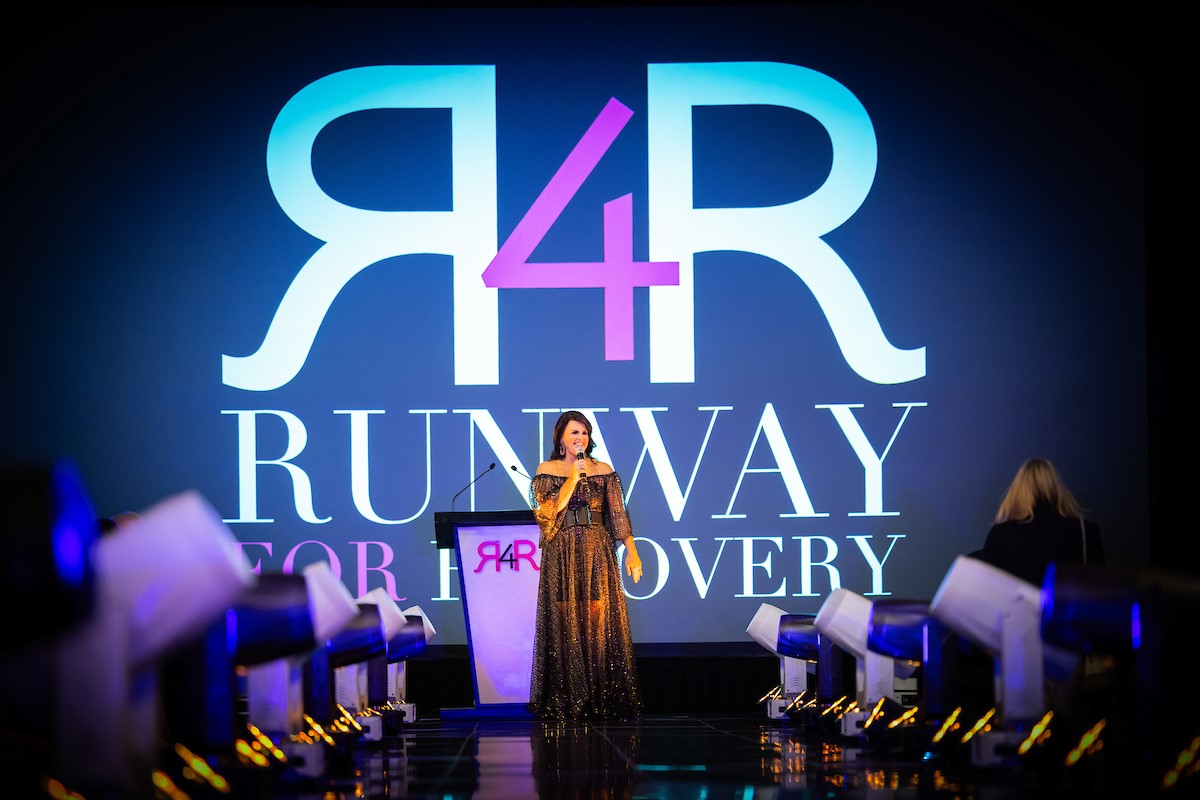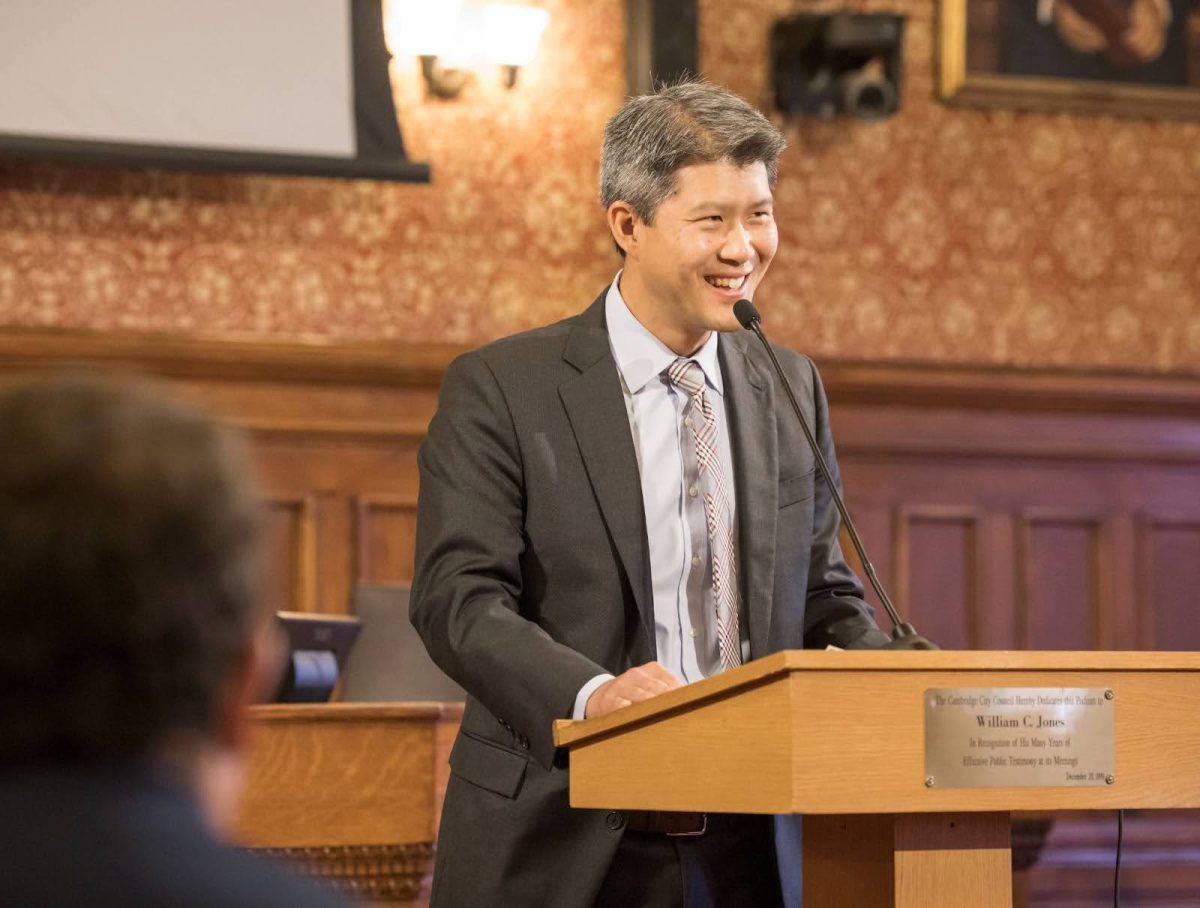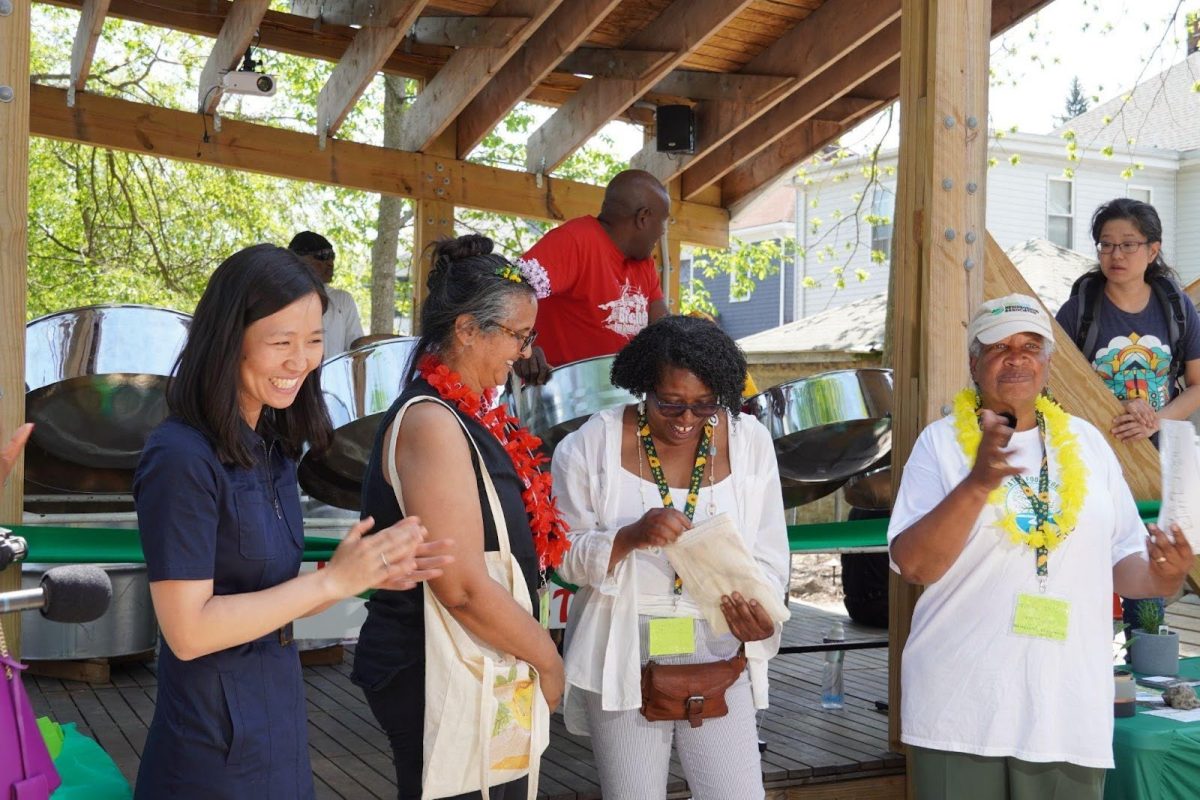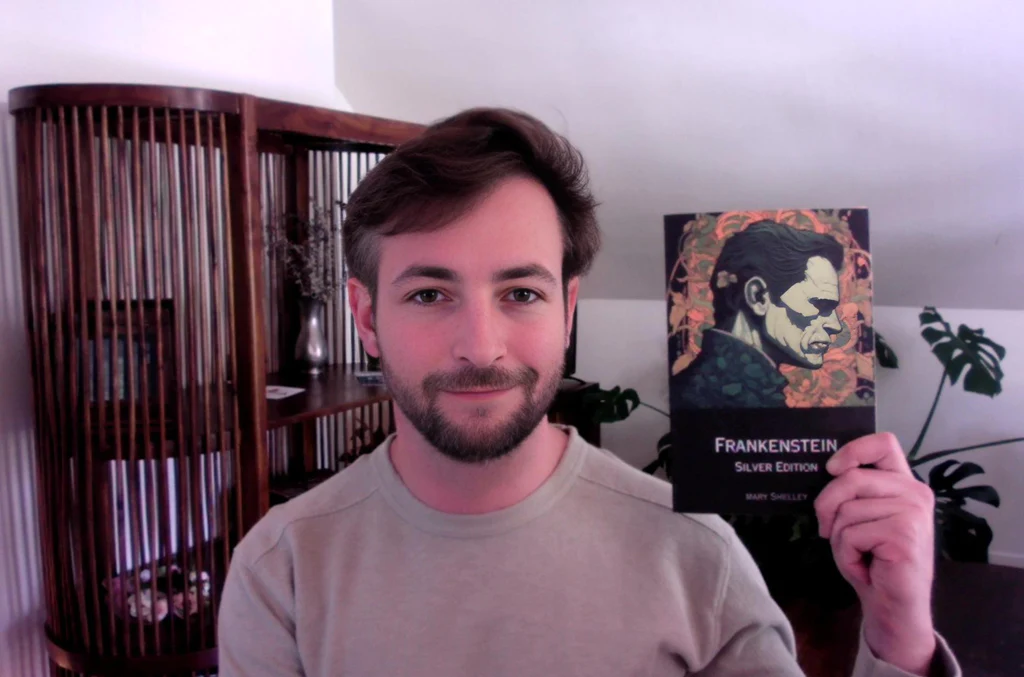Olivia Boger was only 20 years old when she lost her mother to breast cancer 22 years ago.
Grief became her constant companion, until six years later, when she founded Runway for Recovery, a non-profit that allocates grants to families whose guardians have died from or been diagnosed with terminal metastatic breast cancer. After 17 years of hosting fashion shows and connecting with over 850 people affected by breast cancer, she’s raised over $3.1 million for the cause.
“I think breast cancer, the landscape of it, is so focused on the cure. Like, let’s find the cure, let’s research the cure,” said Boger, the founder and executive director of Runway for Recovery. “For me, the cure didn’t come in time, and for a lot of other kids, mom won’t live long enough to see the cure, and I just wanted to make sure that those kids weren’t forgotten.”
Boger, 42, raises money to socially, psychologically and financially support families affected by breast cancer. Families can apply for a year’s worth of funding, which pays for anything from childcare to tutoring, clothing, therapy and extracurricular activities.
During Breast Cancer Awareness Month, Boger hosted the 17th annual runway show Oct. 26 at the Westin Seaport Hotel in Boston. The 107 models who walked in the show varied from children who lost their mothers to patients currently in treatment and post-treatment.
The non-profit has expanded its reach beyond New England and now holds a fashion show in Southern California that will take place on Jan. 27, 2024.
The Scope sat down with Boger in Runway for Recovery’s pink-suffused office in Newburyport to discuss the non-profit organization, the fashion show and Boger’s background.
This conversation has been edited for clarity and length.
Why did you start Runway for Recovery?
My mom passed away from breast cancer in 2001. She was so focused on us having a quote-unquote ‘normal childhood,’ so it really felt like if I was going to do something in her honor, it couldn’t be totally breast cancer-focused. There had to be something about kids in it. So, the first event we ever hosted was meant to raise money to give to kids whose moms had died of breast cancer.
How can families receive funding?
[Families] apply for a year’s worth of funding, and then we break it out into specific buckets. You qualify for funding if your guardian has passed away from breast cancer or has been diagnosed with a terminal metastatic diagnosis.
What were you doing before Runway for Recovery?
I taught English. I was a 9th-grade and 11th-grade English teacher.
Do you find that your background as a teacher has helped you build Runway for Recovery?
Definitely. I would say that just the understanding of how to think about what kids need and think about the importance of parents. I think about the importance of the extracurricular activities that the kids are in. I know how important that is because I would see that as a teacher.
Can you name a specific moment when you felt like you were making an impact?
There was a moment around the second year when a woman I was a teacher with had a sister get breast cancer really young, like 32. And she had been to Runway as a guest, and she looked at me and she was like, ‘I’m gonna live. I’m gonna beat this so I could dance on the runway.’ That was the first time that I was like, ‘Wow, that’s a milestone now for somebody who’s sick.’
What goes into setting up the fashion show?
[The models] sign up in February. They call or Zoom with us and tell us their story. In July, they all meet in Boston. They get to meet one another, which is a really powerful moment for them to see who else is on the runway. Then, in August, they get assigned to their designer or boutique, and then they start fundraising for Runway.
Who supplies the clothes for the fashion show?
There are about 18 different boutiques around all of New England, and then, we always partner with some design students at [the Massachusetts College of Art and Design]. It doesn’t come out and look like this is a collection. It’s more like [the models] get to come out on stage with their hair and makeup done, and their outfits perfect and feel awesome.
Now that you have been doing this for 17 years, how do you reach out to models?
They’ve always come from word of mouth. I’ve never advertised. It’s wild, but I think everybody knows somebody who has had breast cancer. So it’s all been through word of mouth and social and email marketing.
What is an obstacle you have faced in creating a non-profit?
You’re kind of constantly looking for ways to get funding, to find resources for the families. We keep making more money, but then as we become more well known, more people are asking for grants. I’m happy that people know about us. And I’m also motivated and super stressed to raise enough money to fund all those families.
How did Runway for Recovery expand to California?
In 2020, nobody could have live events, obviously, and so we actually pre-recorded dancing in a huge warehouse, socially distanced. What happened was people from all over the country who had heard about us but had never been to an event, came and logged on and watched. One of the people was a man whose sister had just passed away from breast cancer. He reached out after the event and said, ‘I’ve been wanting to do something in honor of my sister. Have you ever thought of expanding beyond New England?’
What do you see for the future of Runway for Recovery?
I think the events that are already happening in the current cities will keep happening. I think that you can thoughtfully put on [fashion shows] in strategic geographic locations that mean something to people and maybe have four or five that happen over the course of a year. One of the things we’re doing is we are intentionally staying special and meaningful, and so I would hate to see them, like I would hate to see this event get to be in 25 locations.
How has the work you have done with Runway for Recovery changed you?
I mean, it certainly helped me grieve for sure. There’s no question that I was feeling that this was a way to put my emotions into something every year and process the loss of my mom in a way that has been life-changing because I’ve been able to keep doing it every year in her honor and that’s meant a lot. And I think, in turn, by doing this work every day, I’ve kind of learned how to understand the human experience of grief and more about breast cancer than I thought I would ever know.
If you are interested in volunteering, visit Runway for Recovery‘s website.







